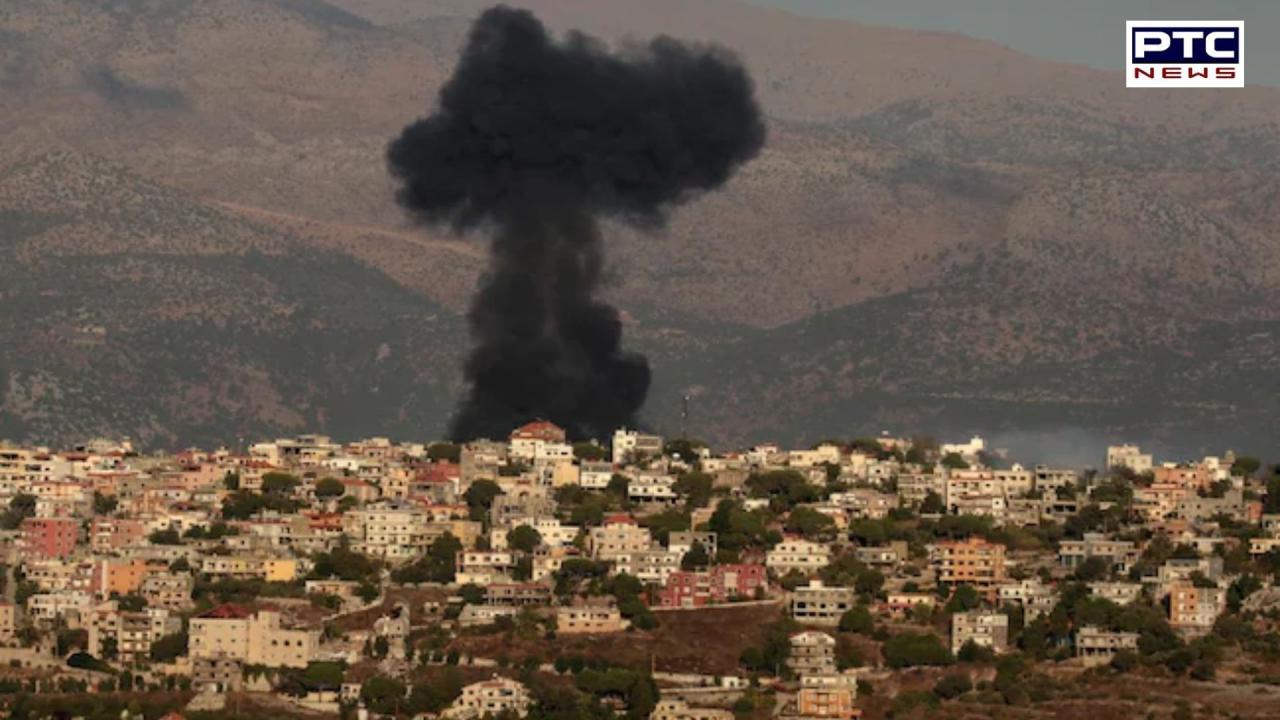Middle East crisis: Israel deploys 100 jets and iron dome to counter Hezbollah missile and drone barrage
Following weeks of rising tension, Hezbollah and Iran, a regional ally, have pledged to exact revenge for the killing of their military commander, Fuad Shukr.

PTC News Desk: The Lebanon-based militant group Hezbollah and Israel have both announced extensive military operations against each other, marking a significant escalation in the conflict between the two sides. Hezbollah, an Iran-backed organization, issued a statement claiming to have launched several explosive drones aimed at critical Israeli military sites. Additionally, the group stated it has fired "more than 320" Katyusha rockets into Israeli territory.
In response, the Israeli military, known as the Israel Defense Forces (IDF), launched pre-emptive strikes targeting locations in Lebanon. These strikes, announced early Sunday, were prompted by what the IDF described as Hezbollah's preparations for "large-scale" attacks on Israel. The Israeli Air Force (IAF) has deployed fighter jets to neutralize these threats, concentrating on Hezbollah positions that pose an immediate risk to Israeli civilians.
This dramatic increase in military activity follows weeks of mounting tension. Hezbollah and its ally, Iran, have vowed to retaliate for the assassination of Hezbollah’s military commander, Fuad Shukr, last month. The group has condemned the killing as a direct provocation and an act of war, declaring that the assassination necessitated a strong response.
As part of its "initial response" to Shukr's death, Hezbollah announced that it "began an air attack with a large number of drones" targeting deep into Israeli territory. The group also reported targeting "a number of enemy positions and barracks and Iron Dome platforms... with a large number of rockets," emphasizing that "military operations will take some time to complete."
In light of these developments, Israeli Prime Minister Benjamin Netanyahu has convened a security cabinet meeting at 0400 GMT today. Additionally, Israeli Defense Minister Yoav Gallant has declared a state of emergency across Israel for the next 48 hours. This "special situation on the home front" grants the IDF Home Front Command expanded powers to impose restrictions on the civilian population to ensure their safety.
"The Israeli Defense Force (IDF) identified the Hezbollah terrorist organization preparing to fire missiles and rockets toward Israeli territory. In response to these threats, the IDF is striking terror targets in Lebanon," read a statement from the Israeli military. "Israeli Air Force (IAF) fighter jets are currently striking targets belonging to the Hezbollah terrorist organization that pose an imminent threat to the citizens of the State of Israel."
As a precautionary measure, Israel's Ben Gurion International Airport has announced delays and diversions of flights, anticipating potential attacks from Hezbollah. Emergency services across the country have also been put on high alert, preparing for the possibility of large-scale assaults.
This latest escalation in violence comes after nearly daily exchanges of fire across the Israel-Lebanon border since the outbreak of the Gaza war in October. The heightened military activities have raised fears of a broader conflict spreading into Lebanon.
The situation is further complicated by ongoing hostilities that began after Hamas's unprecedented attack on southern Israel on October 7 last year. That attack resulted in the deaths of nearly 1,200 people, most of whom were civilians. In response, Israel launched a significant military campaign in Gaza, leading to the deaths of over 40,000 Palestinians, according to figures from the Gaza health ministry.
As the conflict continues to escalate, the region remains on edge, with the potential for further violence increasing by the hour.
Also Read: PM Modi and President Zelenskyy commemorate war victims at Kyiv memorial for children
